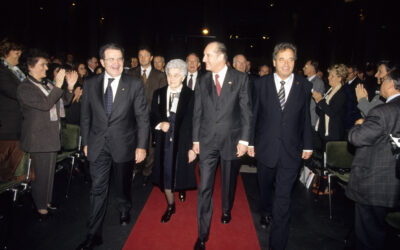103 years ago, this huge tragedy was the first on the deplorable list of disasters that occurred in the 20th century: the Armenian genocide. Recalling it, in 2016, Pope Francis made an appeal: “Having seen the pernicious effects to which hatred, prejudice and desire for dominion led in the last century, I express my lively hope that humanity will learn from those tragic experiences the need to act with responsibility and wisdom to avoid the danger of a return to such horrors. May all join in striving to ensure that whenever conflicts emerge between nations, dialogue, the enduring and authentic quest of peace, cooperation between states and the constant commitment of international organizations will always prevail, with the aim of creating a climate of trust favourable for the achievement of lasting agreements that look to the future”.
Here I am!
Here I am!




0 Comments